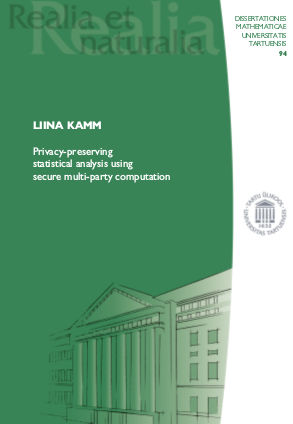
13-17 July 2015, Laulasmaa Spa and Conference Hotel.
Topics:
* How to live securely in a digital society?
* E-Estonia, a role model for the future? On implementation, challenges and limitations
* Privacy and other concerns of a digital society
* Anonymisation and deanonymisation techniques
* Internet measurements and routing: big data and network mathematics
* Examples and hands-on activities from experts
* Lots of fun and insights into controversial topicsTentative Program:
Sunday, July 12: 18.30 Welcome ReceptionMonday, July 13: Living in a digital society, securely?
09.30 – 13.00 Steven M. Bellovin
13.00 – 14.00 Lunch
14.00 – 17.30 Jaan Priisalu & Kristjan Vassil
18.30 DinnerTuesday, July 14: Privacy and concerns about a digital society
09.00 – 12.30 Ben Zevenbergen
12.30 – 13.30 Lunch
13.30 – 17.00 George Danezis
18.30 DinnerWednesday, July 15: Security Ecosystems
09.00 – 12.30 Vern Paxson
12.30 – 13.30 Lunch
13.30 – 17.00 Richard Kemmerer
18.30 Dinner
20.00 – 22.00 Mehis Hakkaja (Hacking Demo)Thursday, July 16: Internet measurements and routing: big data and mobile networks
09.00 – 12.30 Tristan Henderson
12.30 – 13.30 Lunch
13.30 – 17.00 Walter Willinger
18.00 Transport to the gala dinner location
19.00 Gala dinnerFriday, July 17: Student presentations
09.00 – 12.30 Students presentations
12.30 – 13.30 Lunch
13.30 – 14.30 Students presentations
14.30 Closing remarks
15.00 Transport to Tallinn and departure
The registration to summer school has already ended.
